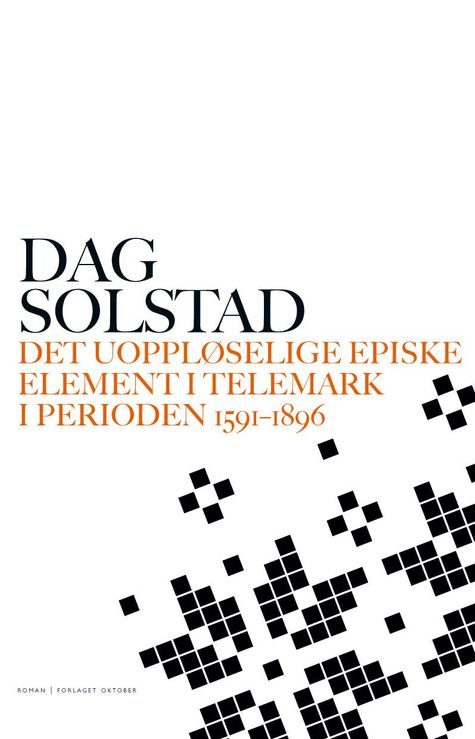“One of the most interesting books for me this past year has been the latest “novel” by the much-laurelled Norwegian Dag Solstad. Since the book, known familiarly over there as “the Telemark novel” (its full title is long), does not exist in English, I have been struggling, happily, to make what I can of it in Norwegian (it’s published by Forlaget Oktober). A most peculiar form of fiction, consisting as it does almost purely of fact and dense with detailed genealogies of Solstad’s ancestors, it is animated, nevertheless, by strangely compelling incidents of centuries-old conflict and joy and by the author’s impassioned investigative spirit and wry commentary”.
LYDIA DAVIS, in her contribution to Books of the Year in New Statesman
“So, Solstad manages, yet again, to renovate, or at least revitalise fiction, like he did before with Armand V. Has he written a good novel? No, it’s not a good novel. It’s a brilliant novel. And it is not a novel at all. However, Solstad opens up to the really big perspectives, not only because the spiritual plays a prominent part in many segments. His writing is original, challenging, knowledgable and existential. He writes of the courses of generations. And what he writes, stands.”
Vårt Land
“Brazen, defiant and merciless … Where other autobiographical authors face inwards, Solstad faces out. I won’t hesitate to warn the readers of Dagsavisen that it is, at times, an ordeal to get through this story, and even more so to keep up with it, not to speak of understanding it. But the reward is grand … It is wonderful”
Dagsavisen
“the flashes of inflection don’t vivify the people as much as the text itself, and they contribute to a melancholy reflection that feels like a reward for your troubles. So, is it a good novel? It is monumental, but I am not sure that it is, without fiction, in fact a novel, like it says on the title page. The correct term would probably be ‘A Book by Dag Solstad’, and thus uncompromising, reflective prose, which brings the reader out of mainstream contemporary literature. I think this genre still has a future.”
Klassekampen
“A fascinating novel, a story as exhausting as it is engaging … a sort of literary extreme sport, a cascade of facts and a symphony of names that takes us through four centuries”
5/6 stars, VG
“Yet again, Solstad excels, with political sting and high resistance in his newly published, disturbing, at times parodic generation novel … As suggested, a lot of this is hard-to-digest food, especially on a starving heart. But he who seeks shall find, and the reader will hardly regret it … Solstad has done it again. We ain’t got him yet …”
Sandefjords Blad
“a novel that, in all its detailed introvertedness, also appears as an opposition to all the authors these days who go back to their own family’s history to figure themselves out. Again, Solstad sets his mark as an author with a restless urge to contradict, to go against any trends and tendencies he might sense. It is this constant need to go against that has always been some of the strength of his authorship, and it still is”
Hamar Arbeiderblad
“even though a lot of the material is bone dry, there are plenty of intriguing scenes, decapitations, people who go mad, not to speak of a particularily interesting fact: Dag Solstad is in fact the great-grandson of The Grim Reaper … an absolutely uncompromising example of the thoughts of literature tha Dag Solstad has had for decades. It makes the book unique”
Dag og Tid



